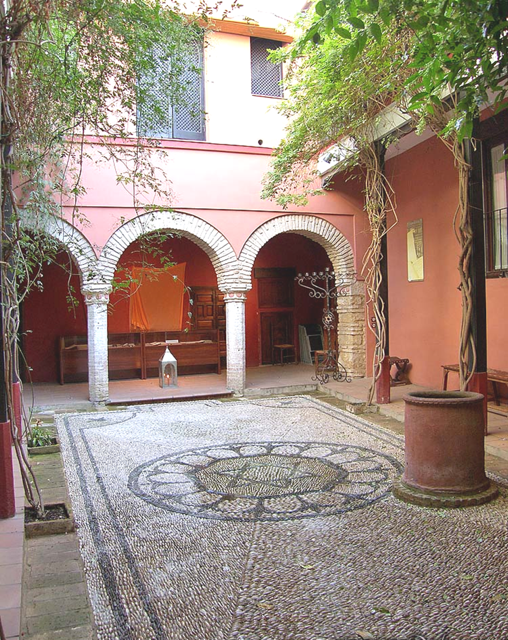MADRID (Reuters) Spain’s parliament on Thursday passed a law allowing descendants of Sephardic Jews to gain nationality, more than five centuries after their ancestors were expelled from the country.

Casa de Sefarad, a museum in Cordoba, Spain, devoted to Spanish Jewry. Photo courtesy of Casa de Sefarad
The law could potentially allow an estimated 3.5 million Sephardic Jews whose families settled in Israel, the United States, Argentina, France and elsewhere to apply for citizenship. They would not have to give up their current nationality to do so.
The numbers of those applying are likely to be much lower, however, running in the tens of thousands, Jewish groups and the Spanish government predict.
The law, suggested last year by Spain’s center-right government, nevertheless has historic resonance more than 500 years after Spain’s Catholic monarchs Isabella and Ferdinand ordered Jews and Muslims to convert or leave the country.
Around 300,000 Jews had lived in Spain before 1492, originally coming there from across north Africa as opposed to the Ashkenazi Jews of northern Europe. The Sephardic Jews were a big presence in medieval cities such as Toledo or Cordoba.
“Today we are passing a law that will re-open the door for all the descendants of those who were so unfairly expelled,” Justice Minister Rafael Catala told parliament.
The application window will last three years and starts in October. Prospective applicants must certify their Sephardic background, and also demonstrate a link to Spain, including by passing a language test and showing knowledge of the country’s culture and constitution.
Spanish law does not normally allow dual citizenship except for people from neighboring Andorra or Portugal or former colonies.
Reporting by Sarah White; Editing by Hugh Lawson





